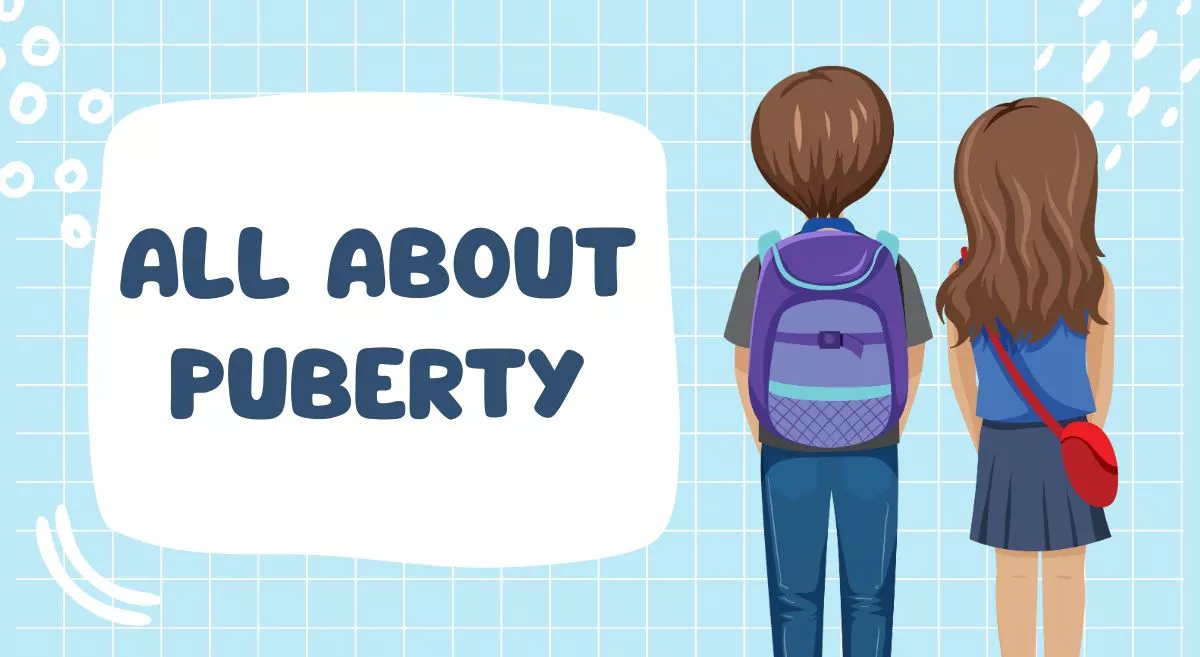Puberty is the natural period of human growth and development. This is the transition stage from childhood to adolescence, a period when emotional, psychological, and physical changes have dramatically altered the body to prepare it for reproductive maturity. Puberty is an experience uniformly recognized by all people, although the individual’s specific changes and timeline vary depending on different factors. The more parents, caregivers, and especially children understand the process, its signs, and challenges, the better they will be at making it through the transition with confidence and support.
This is a stage when a child's body undergoes systematic development, which finally results in sexual maturation and physical growth. Thus, it involves changes in hormones mainly concerning the hypothalamus, pituitary gland, and gonads (testes in boys and ovaries in girls), which stimulate the development of secondary sexual characteristics such as breast development in girls and facial hair in boys. Puberty usually starts at ages 8 to 13 for girls, and ages 9 to 14 for boys, although this can vary. If there's the onset of early or delayed puberty, it may be an indication that there is a medical concern underlying it.
What are signs and stages of puberty?
Puberty is divided into five stages, commonly known as Tanner Stages, which details the physical changes that occur during this time. Here are the common signs and stages of puberty for both boys and girls:
Puberty in Boys
1. Enlargement of the Testes and Scrotum: The first manifestation of puberty is testicular enlargement followed by development of the scrotum; this occurs during the period between 9 and 14 years of age.
2. Penis Growth: After testicular enlargement, the penis increases in length and girth.
3. Pubic, facial, and body hair Growth: Pubic hair develops early in puberty; facial and body hair appears later. Boys may even get a full beard at the end of puberty.
4. Change in Voice: Voice deepens, largely due to enlargement of the larynx and lengthening of the vocal cords; the voice may go through a "cracking" phase in addition.
5. Increase in Height and Muscle Development: Puberty is characterised by a very rapid growth spurt, with an increase in muscle mass and broadening of the shoulders in boys.
6. Nocturnal Emissions: Boys might start having wet dreams known as nocturnal emissions, considered as a normal aspect of sexual maturity.
Puberty in Girls
1. Breast Development (Thelarche): The earliest physical change in most girls is breast development, which begins as small, firm lumps, formed under the nipples. This usually happens to girls between the ages of 8 and 13.
2. Growth of Pubic and Underarm Hair: The growth of pubic hair is another early sign of puberty, which is followed by thicker hair growth in the armpit and pubic areas.
3. Menstruation (Menarche): This usually happens two to three years after breast development starts. It signifies that the reproductive system is functioning correctly. The average age of menarche is approximately 12 but varies for every girl depending on hormones.
4. Changes in Body Shape: Girls begin gaining weight, especially in the hips and thighs, which results in a curvier shape.
5. Increase in Height: Puberty induces a spurt in growth and girls usually grow 3-5 inches per year in that phase.
Emotional and Psychological Changes
The hormonal changes of puberty not only affect the body but also have a profound impact on emotions and behaviour. Children undergoing puberty may experience:
- Mood Swings:
Fluctuating hormone levels can lead to heightened emotions, irritability, or mood swings. - Increased Independence:
Adolescents often seek greater independence from their parents, which may result in conflicts or misunderstandings. - Self-Consciousness:
Physical changes can make children more aware of their appearance, leading to self-consciousness or body image concerns. - Interest in Relationships:
Puberty often sparks an interest in romantic or sexual relationships as children begin to develop feelings of attraction. - Risk-Taking Behavior:
Adolescents may be more likely to engage in risk-taking behaviours due to changes in brain development and a heightened sensitivity to peer pressure.
Some Common Puberty Challenges
1. Early or Delayed Puberty: Early or late development can make children become a target for harassment, ridicule, and bullying at school. Girls who develop early may be more vulnerable to experiencing emotional distress, while boys who mature later may have a problem with low self-esteem.
2. Acne: Excess oil secretion at the time of puberty can cause acne, causing lower confidence in your child.
3. Body Odour: The sweat glands get activated during puberty which leads to body odour. During this time, teaching children about hygiene is super important.
4. Menstrual Problems: Girls may experience irregular period cycles, cramps, and heavy flow sometimes, particularly in the initial years of menstruation.
5. Peer Pressure: Teenagers succumb to peer pressure where they may be forced to follow certain behaviour or standards accepted within the peer group.
How Parents and Caregivers Can Support Children
Supporting a child through puberty requires open communication, understanding, and patience. Here are some tips for parents and caregivers:
- Educate Early:
Talk to children about the changes they can expect before they occur. Use age-appropriate language to explain the physical and emotional aspects of puberty. - Promote Open Communication:
Create an environment where children feel comfortable asking questions or discussing their concerns. - Encourage Healthy Habits:
Teach children about proper hygiene, balanced nutrition, and the importance of regular exercise to support their changing bodies. - Address Emotional Needs:
Be empathetic and validate their feelings. Encourage positive self-esteem by focusing on their strengths and qualities. - Monitor Social Media Use:
Adolescents may compare themselves to unrealistic beauty standards on social media. Encourage a healthy perspective on body image. - Seek Medical Advice When Necessary:
If you notice signs of early or delayed puberty, consult a healthcare provider to rule out underlying medical conditions.
When to See a Doctor
Although puberty is a natural process, there are certain situations that may require a medical evaluation. Parents should consult a doctor if:
- Puberty begins before age 8 in girls or age 9 in boys (precocious puberty).
- There is no sign of puberty by the age of 13 in girls or 14 years in boys (delayed puberty).
- The child faces severe emotional or psychological adverse conditions related to puberty.
- There is a fear of abnormal physical development, like asymmetrical growth of breasts or excessive hair growth.
How school can help in educating students about Puberty?
Schools play a crucial role in educating children about puberty. Comprehensive sex education programs can help children understand the changes they are experiencing, promoting healthy attitudes toward their bodies and relationships. Such programs can also address important topics like consent, contraception, and sexually transmitted infections (STIs), which become relevant as children grow older.
Conclusion
Puberty is a transformational stage of life that gives one a experience of both challenges and opportunities for growth. It is a journey within a child during which some level of physical, emotional, and psychological changes occurs, making it difficult for the child to understand what is happening to them. The best approach to helping children navigate through puberty is open communication combined with education and empathy. As children step into adolescence, the lessons of self-care learned during puberty and lessons of body positivity as well as healthy relationships lay the foundation for a fulfilling and well-adjusted adulthood. The best you can do is talk to them and provide all the useful resources for them to understand this change.








